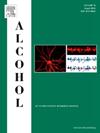Alcohol use-associated alterations in the circulating metabolite profile in the general population and in individuals with major depressive disorder
Abstract
Our aim was to evaluate whether alcohol use is associated with changes in the circulating metabolite profile similar to those present in persons with depression. If so, these findings could partially explain the link between alcohol use and depression. We applied a targeted liquid chromatography mass spectrometry method to evaluate correlates between concentrations of 86 circulating metabolites and self-reported alcohol use in a cohort of the non-depressed general population (GP) (n = 247) and a cohort of individuals with major depressive disorder (MDD) (n = 99). Alcohol use was associated with alterations in circulating concentrations of metabolites in both cohorts. Our main finding was that self-reported alcohol use was negatively correlated with serum concentrations of hippuric acid in the GP cohort. In the GP cohort, consumption of six or more doses per week was associated with low hippuric acid concentrations, similar to those observed in the MDD cohort, but in these individuals it was regardless of their level of alcohol use. Reduced serum concentrations of hippuric acid suggest that already-moderate alcohol use is associated with depression-like changes in the serum levels of metabolites associated with gut microbiota and liver function; this may be one possible molecular level link between alcohol use and depression.

 求助内容:
求助内容: 应助结果提醒方式:
应助结果提醒方式:


